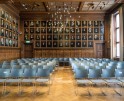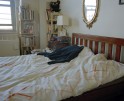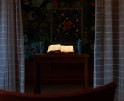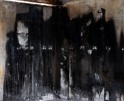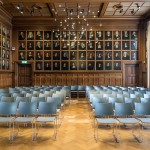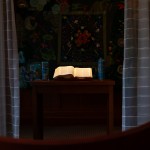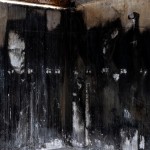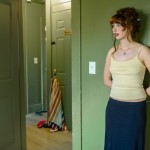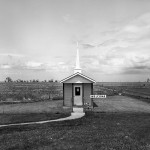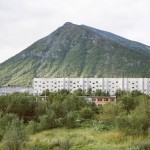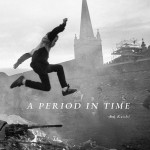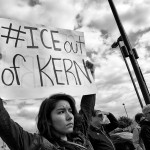Natan Dvir
The work of Natan Dvir first entered my consciousness with this image:
It’s an iconic, masterful image that rivals great war paintings, and has been well celebrated both in color and black and white. Born in Israel, Natan received his MBA from Tel Aviv University and his MFA in Photography from the School of Visual Arts (NY), and now makes his home in NYC. With good reason, Natan’s work finds itself in a host of international magazines and on the walls of galleries and museums around the world. His upcoming exhibitions include The Museum of Israeli Contemporary Art, Ramat Gan, Isral – Group Exhibition – 03/17-07/15, The War museum, Dubrovnik, Croatia – Solo Exhibition – 05/01-07/31, Houston Center for Photography, Houston, US – Group Exhibition – 05/06-06/30, Central European House for Photography, Bratislava, Slovakia – Solo Exhibition – 06/01-07/03.
Natan has just produced a new project, Eighteen, and it’s tremendously insightful and comprehensive. There is text with all the images, and the “testimonials” give us a richer perspective into a culture, society, and an age group that are facing a complex and difficult adulthood. We have a lot to learn from Natan’s work, and it is a priviledge to share a selection of this project.
Eighteen: Although I grew up and spent most of my photographic career in Israel, I came to realize I did not truly know or understand its Arab society – over a fifth of the population consisting of hundreds of thousands of families who stayed within Israelʼs borders after it was established in 1948. This large minority, which is currently experiencing a challenging identity crisis, has been somewhat forgotten amidst the Israeli-Palestinian conflict. In a highly political environment I became interested in the stories of these people living as a minority in a country defined by its majorityʼs religion.
I wish to confront and dispute the widespread misconceptions and stereotypes of the people within my own country who I was brought up to consider more as foes rather than as allies. I decided to focus on Arab men and women at the age of eighteen, a crucial turning point in their lives, when they complete school, become legal adults, and earn the right to vote. Yet unlike their Jewish peers, most do not join the military. By photographing and portraying my so-called “enemy”, I hope to highlight the impact that cultural and internal conflict have had on these young men and women both individually and collectively.
By photographing my subjects within their normal surroundings I hope to present a sense of place, and to reveal the social context of their lives. The essence of the intimate environmental portraits does not lie in their aesthetics, but rather in their complex dynamics – unwelcoming expressions and body language testifying to the tense nature of our engagement. The combination of portraits, personal testimonies and daily life images reveals the transformation in my interaction with my subjects while shedding light on their lives.
Eighteen is an artistic point of contact serving as an invitation to get closer. A project aimed at reconciliation through understanding and respect. An inside view by one who is typically regarded as an outsider. If I, a Jewish Israeli man, have been accepted and was allowed into my subjectsʼ personal lives – so can others
Images from Eighteen
Hanan (Abu Grinath, Bedouin) 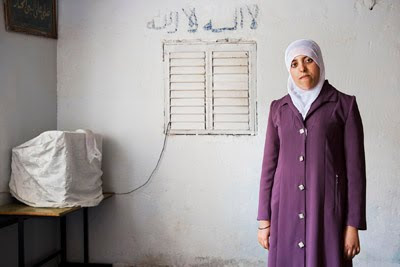
I pray to God I will reach heaven in the after life. I am very happy as a devoted Muslim, and enjoy a traditional lifestyle. Still, I feel the womenʼs role in the Bedouin society is evolving and hope it changes significantly. Until recently we were expected to marry at the age of 18 or even earlier. During the last few years it has become more acceptable for women to get higher education and study at collages or at the university. We are still obligated to return home every night, and can study only at nearby institutions. I wish to study Communication & Journalism and make a documentary film about my village, which is not recognized by the Israeli authorities. This is my biggest dream. I love watching documentary films on TV and learning about the world. Unfortunately, neither my familyʼs financial situation nor my level of education would allow for it at this point. I recently applied to an organization offering scholarships for studies of social work or education. Hopefully it will allow me secure a profession in either of these fields, which would enable me to help the community in my village.
Ehab (Ba’ine, Muslim) 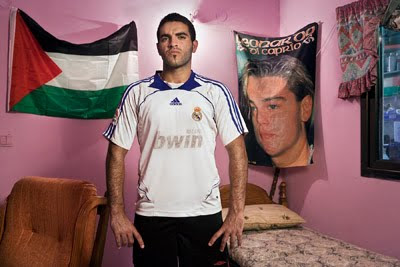
I have been playing soccer for as long as I can remember. This is the most important thing in my life. I used to play for HaPoel Haifa in the 2nd Israeli league. A few months ago, I was transferred to HaPoel Be’ine, my village’s team. We are in the 4th league, so the level of the game isn’t as high as I am used to. With hardly any available funds we are forced to make the best of our very basic facilities. Although this soccer club represents an Arab village, quite a few players on the team are Jewish. I am happy the Jews have to serve in the military, which creates openings on the team. All I can do is continue to play my best and hope I will be able to return to HaPoel Haifa, now playing in the Israeli major league.
Aseel (Umm Al Fahm, Muslim)
I love living in Umm Al-Fahm. This is a Muslim city considered noble for its hospitality and respect for others, yet sometimes we must defend ourselves against our enemies. A few months ago, we had to prevent Baruch Marzel, an ultra-right wing Jewish nationalist, from entering the city to stir up trouble. Ten years ago, three young men were killed here during the October 2000 clashes. I was very young at the time yet remember how horrible it was then. In the past I used to go with my father to Jewish cities, but after what happened, we hardly have time anymore.
I prefer being in a family with sisters, since a brother might have imposed increased restrictions. My mother taught me well how to follow Islam, how to dress properly, and how to be respectful of others. I am not allowed to have a relationship with a man before we are engaged. I loved somebody once but never told him. It is better to avoid all the mess of falling in love before getting married. My dream is to become an English teacher and help the people of my city. I currently work at a local grocery shop, study sociology in a college near Tel Aviv, and improve my English by reading books. I am very optimistic and believe that if you have positive thoughts, good things will happen to you.
Mohammad (Muawiya, Muslim)
My father and uncles work in construction and my mother is a housewife. I am an only child. My parents are extremely generous and give me everything I need, though sometimes I feel they are overprotective. They made it possible for me to travel to various Arab countries including an unforgettable visit to Mecca six years ago, which was very important for me as a Muslim. I used to work in a boutique in Um Al-Fahem and am now working at McDonalds. There arenʼt many options to go out to around here — only restaurants and hookah places. I prefer to go out with my friends to dance clubs in Jewish cities which are much more exciting.
I have lived by myself since I was 14 in this apartment above my parentsʼ house. This house looks nicer and can help me find a better wife. My parents donʼt know, but I have a secret girlfriend. We talk over the phone every day. We have to be very discrete since her parents forbid us to be in touch before getting engaged. We must respect their will, but cannot deny our feelings. Yesterday she had to get off the phone very suddenly. I havenʼt heard from her today and am worried somebody might have found out about us.
Mohammad (Nazareth, Muslim)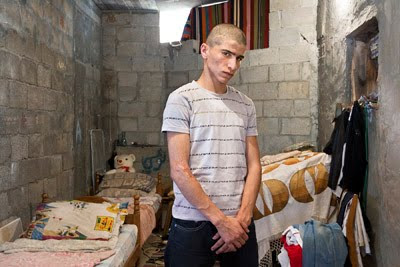
I never got to finish high school. I was in a car accident about a year ago and injured my head and my arms. When I tried returning to school, everybody mocked me and called me names. I became depressed and could not complete my final exams. Half a year ago, I went to buy new shoes and was caught up in a demonstration against Israelʼs war in Gaza. Policemen arrested me claiming I threw stones at them. How could I have thrown stones at them? My arms are too weak because of the injury. I was put in jail where the guards harassed me every day. They would wake us up each morning by kicking us. The Jews were allowed to pray however they wanted to, yet the Muslims’ practices were constantly disrespected. After a month in jail, I was released and was put under house detention. They have no evidence against me, but the trial goes on and on. I wear an electronic leg bracelet and am allowed to leave the house only on Mondays and Thursdays, when I can go to my brotherʼs shop in the city. I usually use this time to hang out with my friends in the neighborhood.
Angham (Kfar Qassem, Muslim) 
My father is a high school principle and my mother is an Arab language teacher. Education was always very important in our house. I love to study and hope to do well in the upcoming Israeli SAT exam so I can study in the university. Many Arabs see the exam as discriminatory and choose to study in Jordan instead. I hope to be accepted to physiotherapy studies and make enough money to be able to donate to charity for the construction of a school or a mosque. I donʼt like to watch modern music channels and enjoy only religious programs with preachers explaining the knowledge embodied in the Koran combining faith and studies. The Islam is attacked these days all over the world. The attacks come even from Muslims that try to imitate western lifestyle. Muslim women find it especially hard given the common negative reactions to the hijab (traditional head scarf). Our religion is beautiful and encourages studies, having an order in life, and earning a place in heaven.
Iʼve recently gotten engaged and hope to get married in the upcoming summer. This is my first relationship with a man of course, as it is improper for a Muslim woman to meet with a man before there are engaged. Iʼm very excited and confused by my emotions as I am finally allowed to fall in love.
Anat (Sheikh Danun, Muslim)
I was named after a Jewish municipal worker from Nahariya that my father used to work for as a county-employed gardener. During high school I joined the “Bereshit LaShalom” (Genesis for Peace), a multicultural theater company, and traveled with
them to Europe to participate in performances promoting peace. This experience was very meaningful for me and I wanted to do more things with Jews and try to understand them further.
After graduating from high school, I chose to volunteer for national service for a period of one year. I joined a collective of 18-year-old Arabs and Jews in northern Israel which supported the local education system in villagesʼ schools. This was an extremely rewarding experience. I feel I learned something greater than life. It helps me understand my life and the place Iʼm living in.
Dina (Jaffa, Jewish-Muslim)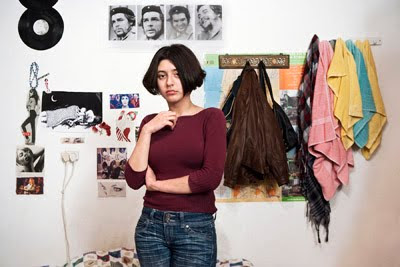
I was born to a Jewish Russian mother and a Muslim Israeli father in Ukraine. They are both doctors and met in medical school. I moved to Israel with my family at the age of five. My family lives in Taibe, a Muslim city in the triangle area that is heavily populated by Arabs. I didnʼt really like living there and felt oppressed as a woman in that culture. My mother could not work as a doctor and had to open a boutique for brides. Boys and girls remain separated. There are hardly any places to go out. I was able to hang out with my friends only at our homes or in Jewish cities. I joined the Communist Youth Movement, but everybody was always trying to prevent me from organizing activities. My parents encouraged me to leave Taibe and find a place I felt more comfortable socially and professionally. I am now living in Jaffa in a collective of Arab and Jewish human rights activists and volunteer in various organizations.
I donʼt really care if I live with Arabs or Jews. I guess I kind of did that all my life anyhow. I appreciate people for who they are and have little regard for that kind of categorization. I am both Jewish and Muslim; Both Russian and Israeli. I can be defined any way that makes you feel comfortable, but if you ask me, I would prefer not to be called any of the above — I am a human rights activist.
Mohannad (Be’ine, Muslim)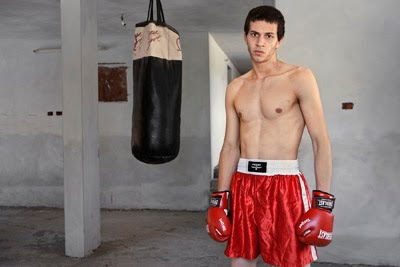
Iʼve been boxing ever since I was young and have been the Israeli Middleweight division champion (up to 75 Kg \ 165 lb) for the last couple of years. Iʼm training every day either at a boxing gym in the nearby city of Akko together with Jewish and Arab boxers or here in the lower floor of my house. I canʼt make a living as a boxer and have to work with my older brother as a repairman. I donʼt like to talk about politics since I believe it never leads to anything productive. The situation would have been much better in Israel if Arabs and Jews were treated equally. Hopefully I will have a chance to move to the US or Sweden where I can train at better facilities and experience less discrimination as an Arab.
Reeham (Rahat, Bedouin)
The origin of my family of 11 brothers and sisters comes from the Bedouin tribes of Sudan. We live in neighborhoods 7, 11 & 20 in Rahat, the only Bedouin city in Israel. People live in modern buildings and houses, yet many families try to preserve elements of our nomad culture. There are no movie theatres or nightclubs. Men hang out in hookah bars or playing snooker, while women spend their time at home or visiting friends.
When I went to school I used to wear a veil since I wanted to be like all the other girls. I prefer to go around wearing a hat and trousers and donʼt see it as a bad thing as most Bedouins. People saw me as a bad person and were surprised to hear about my future plans. Young people in our society struggle between adopting modern lifestyle and preserving our heritage and culture. My dream is to become a doctor, yet I have to work in order to save money for my studies. I would like to study in Russia, though my brothers recommend I go to England or Jordan. I want to live in a non-Arab country and experience a different culture. It is extremely rare that a Bedouin woman would be allowed to study away from home not escorted by a male family member, so I am very grateful for my familyʼs support.
Sliman (Shkip, Bedouin) 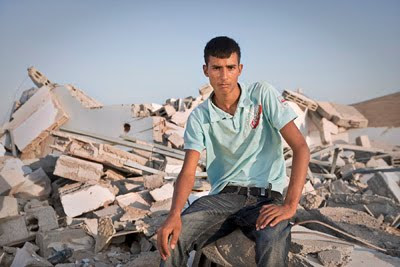
I have 6 brothers and 3 sisters. A couple of my brothers work in gardening. Iʼve been searching for a job for a long time now yet nothing is available. Our family is surviving on social security stipend. We are living in one of 47 Bedouin villages not recognized by the state of Israel. The authorities do not provide us with water or electricity nor allow us to build permanent houses. My home was destroyed a week after we received the court order. Many policemen arrived at the village, evicted us out of the house and destroyed it together with 6 other buildings. This rubble is what was left of it. My father served 23 years in the Israeli army. Two of my older brothers were about to join the army, yet refused to do so after our house was demolished. I do not want to serve a country that doesnʼt respect the Bedouins and denies us of our rights. All I dream about is having a big house with running water and electricity as others do.
Daily Life, from Eighteen
Family Dinner
The men of Awad family share the traditional Maklube during Friday family dinner Jerusalem. A large part of the Arab society in Israel follows traditional lifestyle defining gender rolls and separating between the men and the women. The men dine together and the women follow after they have finished.
Jehad with Friends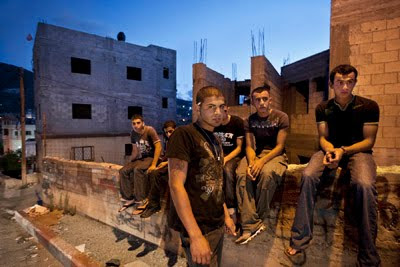
Jehad Nassar, eighteen, standing next to some of his gang members in the streets of Arrabe. Jehad is a local gang leader and has seen one of his friends loose his leg in a recent fight against another gang. Crime and gang disputes are very common as the police hardly enter Arab settlements.
Aseel Praying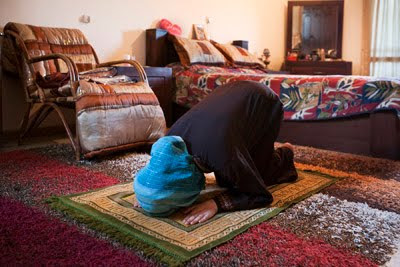
Aseel Mahajneh, eighteen, praying at her home in Umm Al-Fahm. Muslim women pray 5 times a day as the men, yet do so at home and not at the mosque.
Iman Serving her Father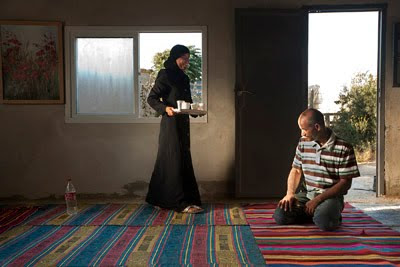
Iman Iben-Atami, seventeen, serving her father in the guest-room of their home in the illegal Bedouin village Hashem Zana. The Bedouin society is very traditional. Women are expected to follow a very strict lifestyle and be obedient to the will of their father or husband.
Card Game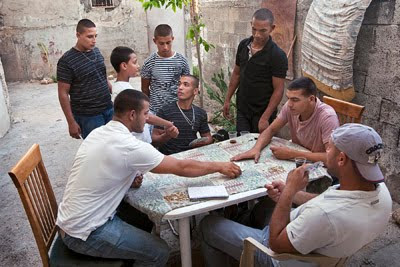
Mousa Hatem Al Rifi shakes the hand of a friend while playing cards with his brother and other friends. Mousaʼs father was one of the leaders of the local mafia and was murdered four years ago by his bodyguards. Mousa quit school a couple of years ago and works with his two brothers as an electrician. His dream is to leave the city of Lod which is infested with violence and drug traffic, yet he is unable to do so until his family resolves the blood-vengeance inflicted on them by his father death.
Homework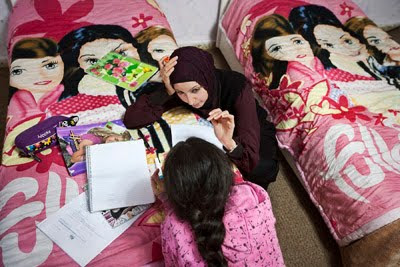
Angham Amin Issa, eighteen, helps her sister Johaina (10, B) with her homework. Most Arab families have many children, forcing the older to help their younger siblings.
Bedouin Wedding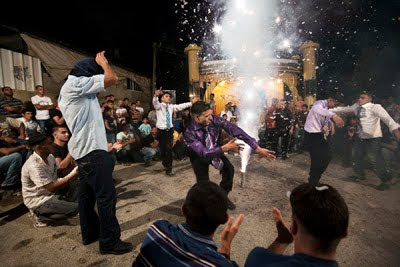
Hundreds of men celebrating around three grooms dancing at the end of their wedding in the streets of Rahat. The last part of a Bedouin wedding is a large party celebrated out in the streets.
Living Room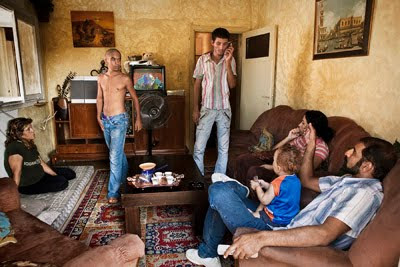
Mohammad Nadaf, eighteen, and his family in their living room above the market in Haifa. Mohammadʼs parents divorced a few years ago. His mother remarried a Palestinian resident of East Jerusalem. His father is a drug addict and goes in and out of jail. Mohammad quit school two years ago and tries to work to support his family, which survives on welfare.
Posts on Lenscratch may not be reproduced without the permission of the Lenscratch staff and the photographer.
Recommended
-
Review Santa Fe: Leslee Broersma: Tracing AcademiaFebruary 11th, 2026
-
Review Santa Fe: Ilana Grollman: Just Know That I Love YouFebruary 10th, 2026
-
Review Santa Fe: Julia Cluett: Dead ReckoningFebruary 8th, 2026
-
Review Santa Fe: Elizabeth Z. Pineda: Sin Nombre en Esta Tierra SagradaFebruary 6th, 2026


